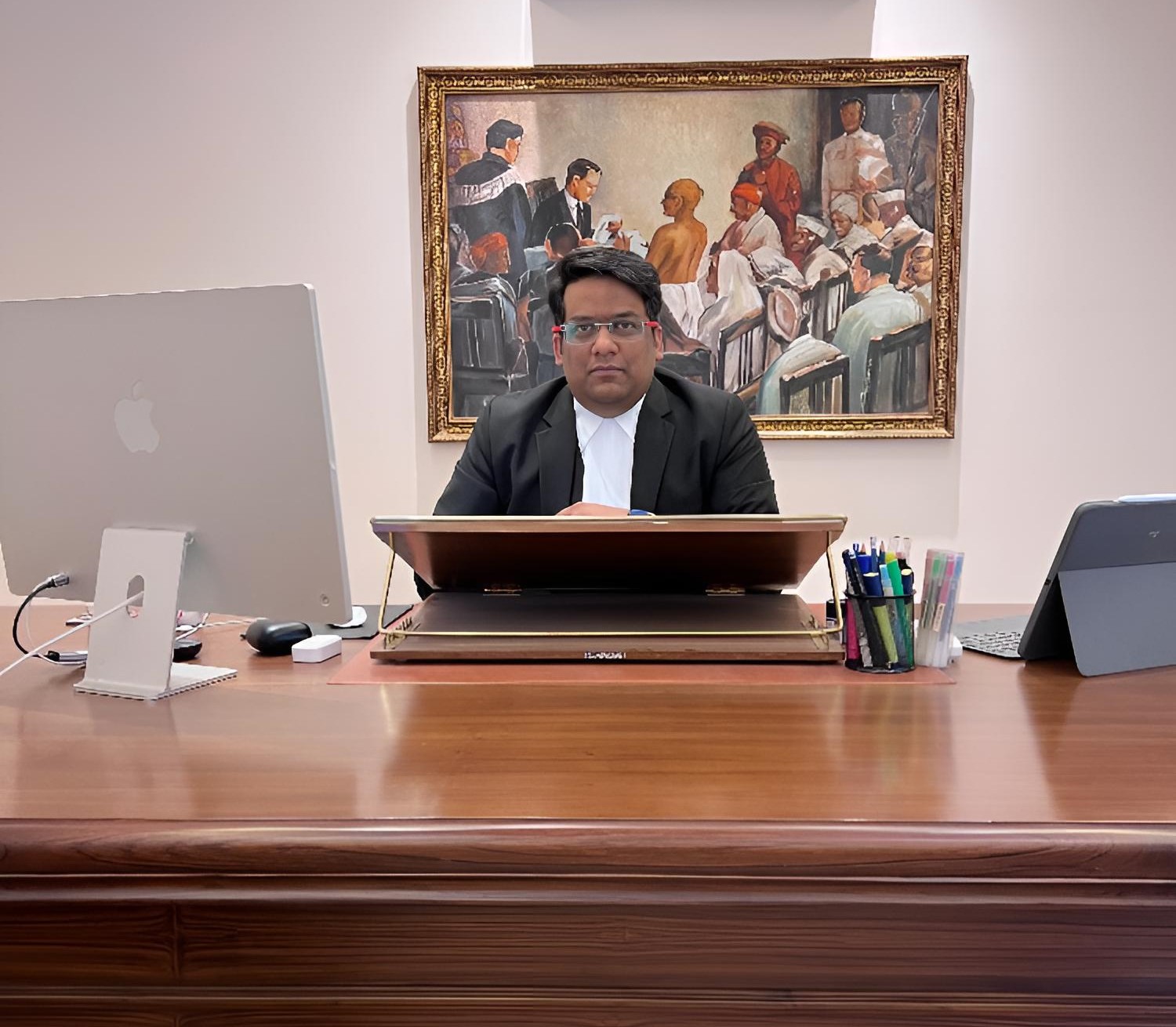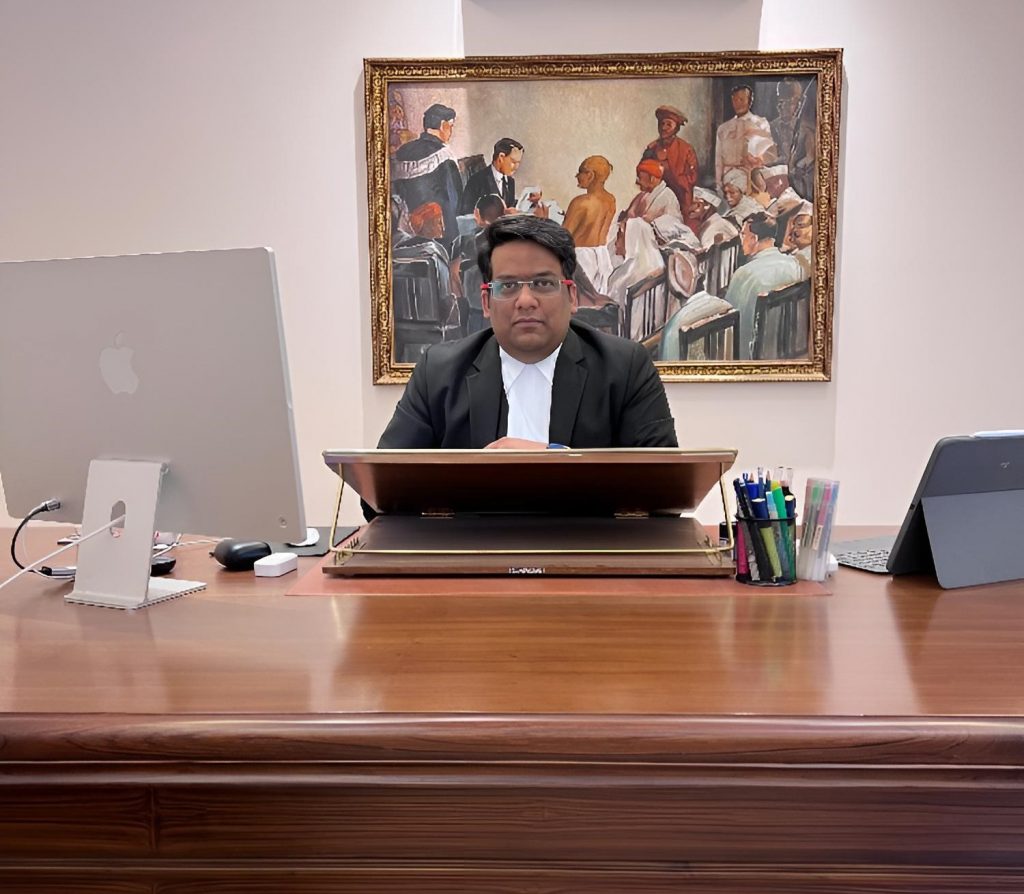This interview has been published by Priyanka Karwa and The SuperLawyer Team
Could you share a bit about your journey into law, especially being a first-generation lawyer? What inspired you to take this path?
Well, this question takes me down the memory lane. I must admit that law was not the first career option I forayed into. I belong to a family of Chartered Accountants and it was expected that I also follow the footsteps of my father and eventually join the family firm. After completing my schooling, I did brush through the entrance exam for CA i.e., CPT exam. However, numbers never interested me. There was a subject in the syllabus for CPT exam – Mercantile Law which had topics like Contracts, Sale of Goods Act, Partnership Act etc. While reading the subject, I was intrigued. Thereafter, I started researching on law as a profession and gained more interest while reading about renowned seniors in newspaper articles and their interviews on TV, which helped me in taking the decision to pursue law.
As someone managing a diverse practice, from private clients to standing counsel for Election Commission and various authorities, how do you maintain a work-life balance? Any unique strategies you’ve developed?
Great Question! Managing work life balance is always a debated topic in any field of work. I must admit that initially it was very overwhelming for me but as a first-generation lawyer, I had the grit and determination to manage my work efficiently. Everyone has a different style of maintaining work-life balance. For me, better planning, thorough preparation and the ability to keep calm, even when there is are last-minute listing of cases or urgent drafting, is something I’ve learnt out of practice over the years.
Since my decision to litigate and develop my own practice was clear to me very early on in my career, I had accepted that the journey ahead would not be a cake walk. At the end of the day, the satisfaction I gain from my work is what pays off and makes me strive harder.
It would be wrong for me to paint a rosy picture and say that there is a good balance of work and life in the field of litigation. The balance does come, but not very early on in this path. One should always make the most out the moment. According to me, the best way to maintain work life balance is to unwind whenever one can and has time to.
Can you share a funny or memorable moment from your early days in the legal field that taught you a valuable lesson or made you laugh in hindsight?
After completing my course in law, I was placed with the litigation department of J. Sagar Associates, one of the leading law firms in India. Being a fresher with zero work experience, it was a very proud moment for me and at the same time, it was nerve-wracking. Working in a law firm that to one of the leading law firms, you are expected to be professional and crisp with your work.
In the first week of my joining the firm, I was given an assignment of drafting. According to me, drafting is something which nobody can teach you and you only get better at it with practice. So I had prepared a draft to the best of my ability and limited knowledge at the inception of my career. My reporting partner in the firm made me sit with him and explained that the synopsis which we make in the petitions is what makes or breaks your case. He explained that one should always make sure that the synopsis of the petition should ensure that your story reaches the Judge and it should be as short as possible. This valuable lesson which I got early in my career has helped me a lot while drafting petitions.
Starting your career at one of India’s top law firms and then transitioning to individual practice is quite a journey. What inspired you to take the leap and start your independent practice, and how has the experience shaped your approach to the legal profession?
Coming from a family of Chartered Accountants, I was always expected to become one as-well. Albeit my interests were always aligned towards law and I never imaged joining the family firm. But being brought up in this environment I saw my father build his practice from scratch. This instilled in me the principle of working for self and building one’s legacy (or at-least making an honest attempt). I learnt that in order to achieve the same, not only did it require patience, but also consistency.
Upon graduating I joined one of India’s top law firm’s only to realise that the structure, methods, and expectations were supportive/ aligned with the goal in my mind. Surely, I did learn a lot in the short span I worked in firm, but keeping in mind my ultimate objective, I pivoted and took a huge risk by going independent. This risk I took early on in my career was something I am thankful for today. Initially it was tough to develop clientele and I was surrounded by negativity. But with time it has only taught me that one needs to trust their instinct, stay consistent and put their best foot forward.
As the Standing Counsel for the Election Commission of India and representing industrial development authorities, your work spans various domains. What’s a case or project you’ve worked on that you are particularly proud of, and why does it hold significance for you?
To me, every case is important and challenging and has taught me something or the other which remains with me for a long time. Every case that I have done either before the Hon’ble Supreme Court of India or other High Courts are dear to me. It is difficult for me to pin point a specific case but I must tell you that being a Standing Counsel for the Election Commission of India comes with its own challenges. Why I say this is because Election Commission of India is a constitutional body which is entrusted with conducting the elections of the largest democracy in the world along with the legislatures of the States as well as the Hon’ble President and Hon’ble Vice President of India.
Of late much has been said about the Election Commission of India in the social media, however, when you appear for the Commission before any Court, it is expected that that you represent the Commission fairly and independently. The Courts also take your word for it because at the end of the day, you are representing a body which is the watchdog of free and fair elections in the country.
We know you’re deeply involved in legal matters, but when you step out of the courtroom, what’s Ankit Agarwal’s go-to way to unwind? Any hobbies or activities you indulge in to relax?
For me the best way to unwind is spending time with my family. Whenever I get the time to unwind, I make sure that I go out with my family for a meal or a movie. One thing that the Covid-19 pandemic has taught me is that there is nothing better to spend time with your loved ones.
For young aspiring lawyers looking up to your journey, what piece of advice would you offer to help them navigate the early years of their legal careers?
My advice to the young aspiring lawyers will be hat the journey is difficult but it’s not impossible. You need a lot of patience, hard work and zeal but later on in your career, you reap the results of the hard work put in in the initial years of your career. Litigation is not only limited to drafting and arguing in court but knowledge and awareness of law plays a pivotal role. Do not succumb to fear of judgment and pessimism which is very common in our profession. Work hard, trust your instincts and try to be as consistent as you can.
Get in touch with Ankit Agarwal –

























